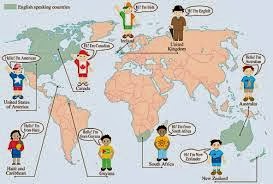THE HISTORY OF ENGLISH (Part 3)
The third chapter of The History of English in 10 minutes is devoted to the importance of Shakespeare in the English language. It seems that you find the episodes rather difficult, but don't worry, they are not that easy. This week you just have to watch the video and read the transcript below as you watch along.
Remember that if there are any words you don't understand, double-click on the word in the transcript and find out its meaning.
Transcript:
As the dictionary tells us, about two thousand new words and phrases were invented by William Shakespeare. He gave us handy words like ‘eyeball’, ‘puppydog’, and ‘anchovy’ and more show-offy words like ‘dauntless’, ‘besmirch’ and ‘lacklustre’. He came up with the word ‘alligator’ soon after he ran out of things to rhyme with ‘crocodile’ and a nation of English tea drinkers finally took him to their hearts when he invented the ‘hob-nob’.
Shakespeare knew the power of catchphrases as well as biscuits. Without him we’d never eat our ‘flesh and blood’ ‘out of house and home’. We’d have to say ‘good riddance’ to the ‘green eyed monster’ and ‘breaking the ice’ would would be as ‘dead as a doornail’. If you tried to ‘get your money’s worth’ you’d be ‘given short shrift’ and anyone who ‘laid it on with a trowel’ could be ‘hoist with his own petard’. Of course, it is possible other people used these words first, but the dictionary writers liked looking them up in Shakespeare because there was more cross-dressing and people poking each other’s eyes out.
Shakespeare’s poetry showed the world that English was a rich, vibrant language with limitless expressive and emotional power and he still had time to open all of those tea rooms in Stratford.


Comentarios